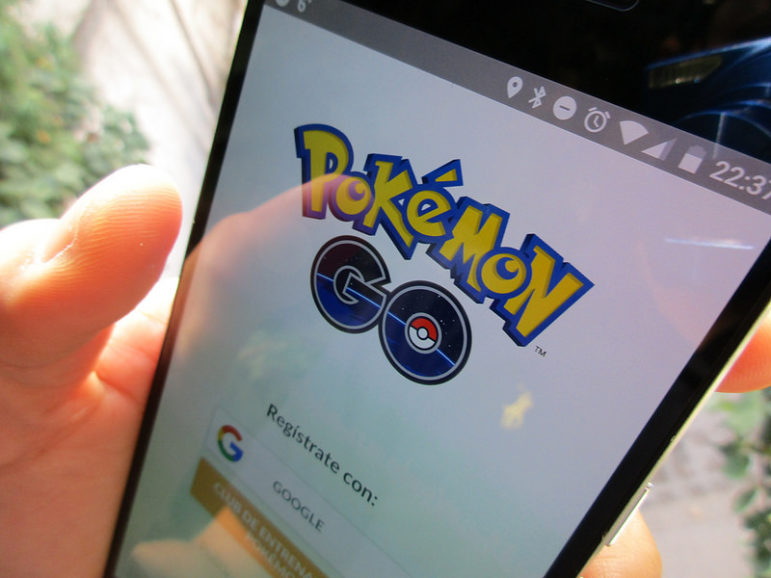
August 3, 2016; BBC News
Pokemon GO has captivated the United States since its introduction, with over 30 million downloads in its first month. While the game has a number of redeeming qualities—perhaps the most important being that it encourages players to be more physically active—Pokemon GO also creates unintended safety issues that warrant being investigated and addressed.
The augmented reality game involves capturing virtual creatures, called Pokemon, which appear on your phone as they would in real life by using the device’s GPS and camera. As players walk around in real life, they “encounter” (via their phones) the virtual creatures at “Pokestops,” and “capture” them using a “Pokeball.” “Pokestops” are real-life locations where players can go to collect virtual items such as “eggs” and Pokeballs to help them capture Pokemon. Although the App is free to download, players can purchase tools such as “lures” to help attract more Pokemon to their location.
Although a seemingly innocuous game, Pokemon GO has already attracted a number of robbery attempts in the St. Louis area, in which suspects set up these lures at Pokestops to pull victims to the locations. Even more alarming are the safety issues that arise for minors, as children between 13 and 17 make up 22% of the millions of Pokemon GO players according to a SurveyMonkey Intelligence study obtained by Forbes. New York senators Jeff Klein and Diane Savino recently published “Protecting Our Children: How Pokemon GO and Augmented Reality Games Expose Children to Sex Offenders,” which takes a closer look at how Pokemon GO can pose a significant threat specifically for children. Among their key findings was that when investigators looked at the homes of 100 sex offenders, 73 of the 100 homes were within a half-block radius of a Pokemon GO character or stop.
Sign up for our free newsletters
Subscribe to NPQ's newsletters to have our top stories delivered directly to your inbox.
By signing up, you agree to our privacy policy and terms of use, and to receive messages from NPQ and our partners.
Across the United States, Pokemon GO is bringing children within the reaches of sex offenders. In Arizona, a Pokestop was located at a hotel that turned out to be a halfway house that was home to 43 sex offenders. In Indiana, a registered sex offender was arrested for playing the game with a 16-year old boy on the lawn of the courthouse. In California, Pokemon GO led children to the Sunny Acres Sober Living Facility, which is also home to a number of released sex offenders. Fortunately, no one has been hurt so far, but what would prevent sex offenders from purchasing the lures to attract unsuspecting victims to isolated Pokestops or even their home?
The State of New York isn’t waiting to find out. Governor Andrew Cuomo announced on August 1 that as part of their sentence, sex offenders on parole will no longer be able to sign up for Pokemon GO or other Internet-enabled games. New York State already bans offenders on parole from social media, and has agreements with 40 social media and related companies to share weekly sex offender registry updates. Both Cuomo and Klein have made suggestions to Niantic, the creator of Pokemon GO, for instance that the company cross-reference players with the state’s sex offender registry, and that Pokemon creatures not pop up within 100 feet of a sex offender’s home.
In response to Cuomo’s announcement, Klein said, “Pokemon GO provided sex offenders with a virtual road map to our children. We know that pedophiles will always seek new ways to lure victims, and this new technology that entertains our kids could also bring them close to dangerous individuals instead of Pokemon. . . . While this directive is a good start, there’s still more work to be done legislatively to protect children who use this technology and I will continue to monitor this situation.”—Sheela Nimishakavi













